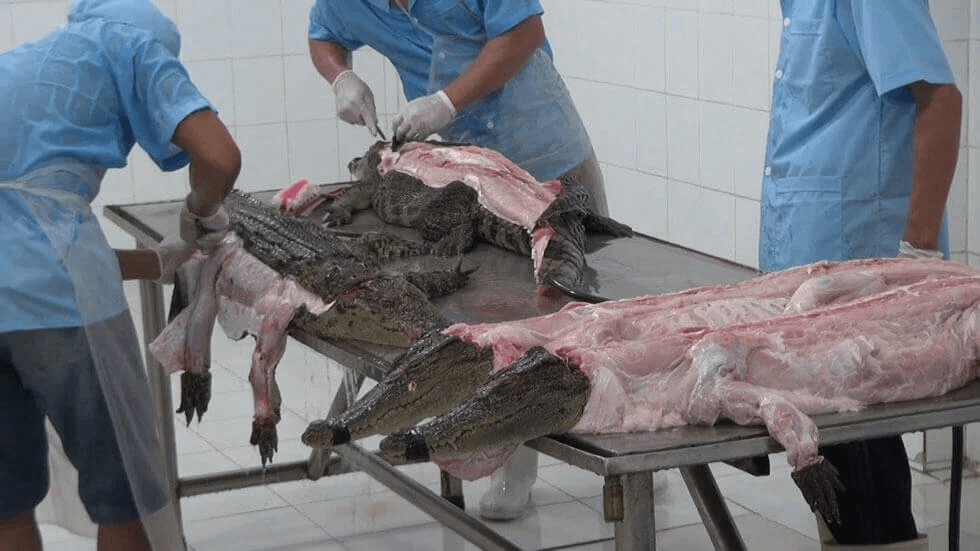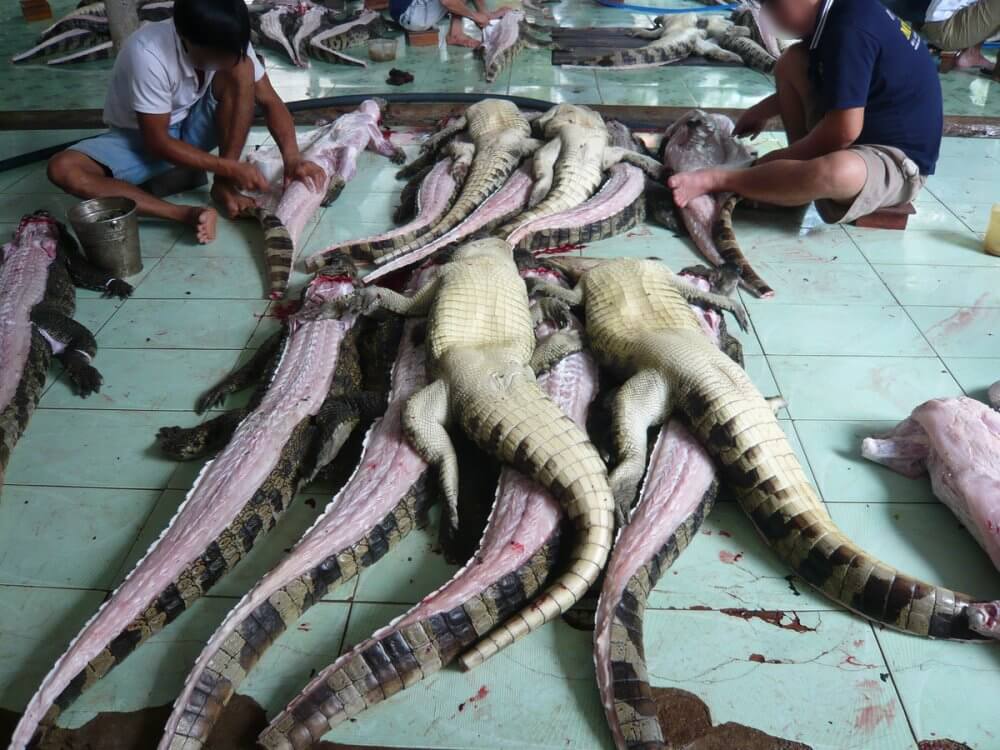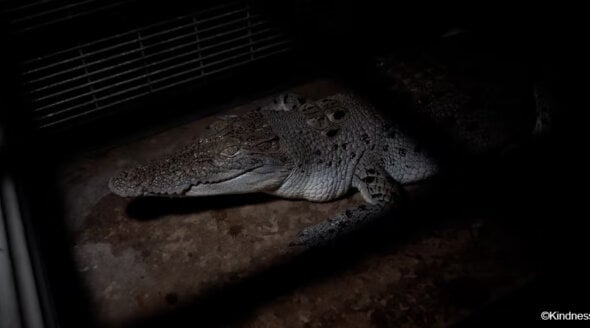Hermès Challenged to Visit Exotic-Skins Abattoirs With PETA
“You act as if you have nothing to hide .… Prove it.” During the French fashion house’s annual meeting, a representative of shareholder PETA US asked Hermès CEO Axel Dumas, “When shall we go together to examine the actual conditions in which the animals live and die?”
Many major designers have abandoned exotic skins, but Hermès continues to sell items made from the cruelly obtained materials – and PETA entities are keeping the pressure on the company to drop these products of suffering.
Hermès should not continue to ignore the atrocities taking place on the farms and at the abattoirs that supply it with exotic skins. There’s nothing luxurious about the suffering of sentient beings, and the brand must switch to the cruelty-free plant-based materials that caring consumers demand.
“It makes no difference which farm Hermès sources skins from. This is standard industry practice. Your own animal welfare policy states, ‘The Hermès approach to animal welfare recognises animal sentience and the importance of providing opportunities for animals to have positive life experiences.’ Yet you continue to subject reptiles to a lifetime of suffering and a slow, agonizing death. You act as if you have nothing to hide, so we say, “Prove it.” We have asked to join Hermès on visits to exotic-animal farms and slaughterhouses—and your lack of response speaks volumes. We believe our fellow shareholders would agree that this would be a useful endeavor. So our question is this: When shall we go together to examine the actual conditions in which the animals live and die?”
– James Fraser, on behalf of PETA US
In response, the CEO declined the invite, while admitting: “I’m not saying there are no problems in the industry”. Dumas went on to gaslight shareholders, referencing CITES – the Convention on International Trade in Endangered Species of Wild Fauna and Flora – regulation which relates only on the number of animals traded, not the horrific manner in which they are reared and killed.
One Birkin Bag Means the Death of Three Crocodiles
Three crocodiles are killed to make just one Hermès Birkin bag. Undercover investigations – including a video from the Australian association Kindness Project filmed on intensive breeding farms belonging to Hermès – reveal the horrors reptiles who are confined, tortured, and killed for their skin endure. The footage shows crocodiles crammed into cramped enclosures and then isolated in small, filthy cages before being dragged out to be mutilated, including by being stabbed with a screwdriver.
In December, a PETA Asia investigation into crocodile farming in Thailand showed how crocodiles bred for their skin spend their lives in barren enclosures containing murky pits of water before being violently killed. One crocodile was seen moving for a full 23 minutes after a worker plunged a metal blade into the animal’s neck.


Fashion Without Abuse
Many major designers, such as Mulberry, Victoria Beckham, Chanel, Burberry, Diane von Furstenberg, and Vivienne Westwood, have banned the use of the skin of reptiles or other wildlife. Copenhagen Fashion Week also recently banned exotic skins from its runways.
Progressive designers are championing vegan leather options made from pineapples, mushrooms, apples, cacti, and other innovative materials that look fabulous and are better for the planet and kind to animals.
Help End the Exotic-Skins Industry
Send a message to Hermès now to urge the brand to drop exotic skins:





